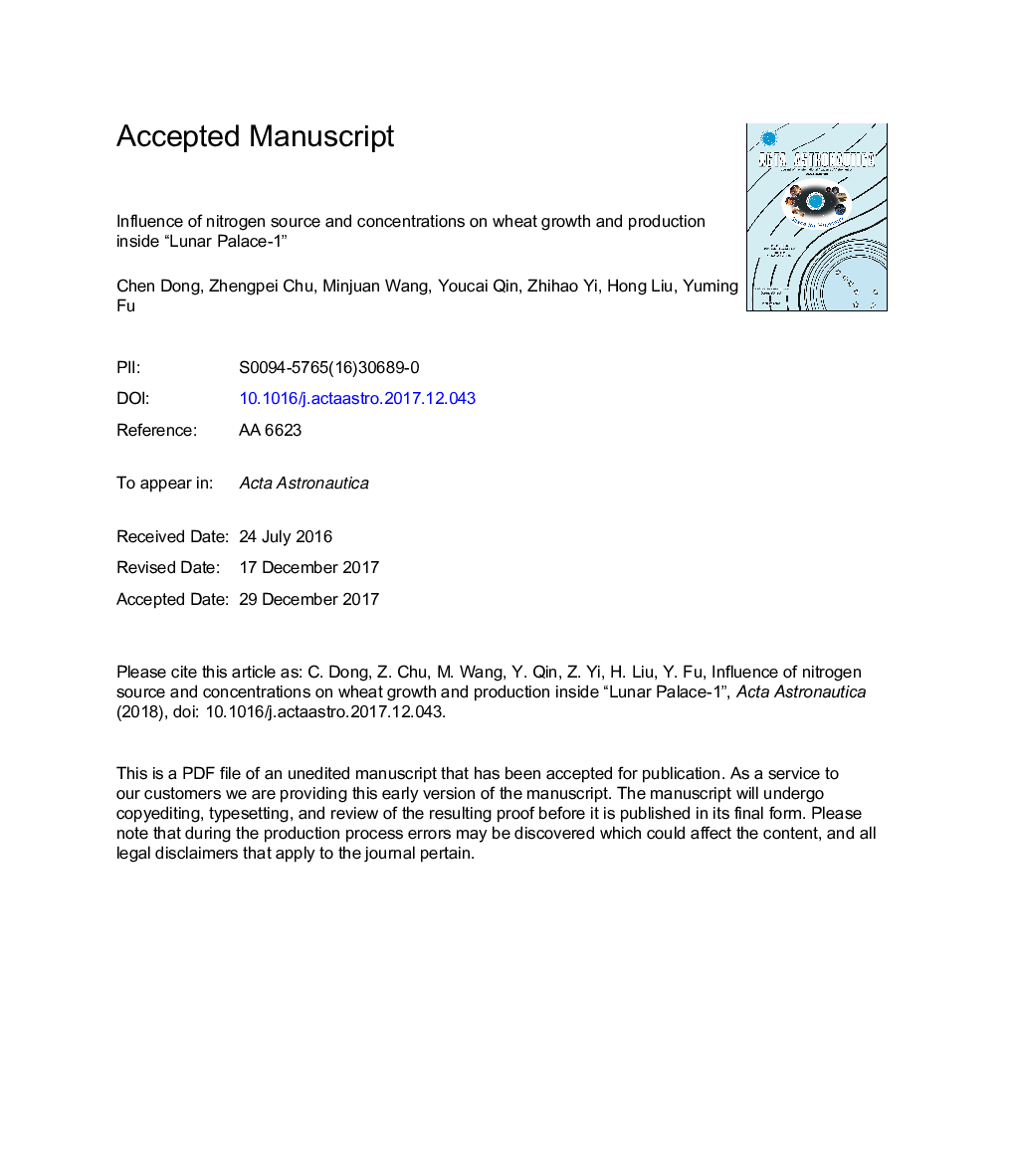| Article ID | Journal | Published Year | Pages | File Type |
|---|---|---|---|---|
| 8055736 | Acta Astronautica | 2018 | 33 Pages |
Abstract
Minimizing nitrogen (N) consumption and maximizing crop productivity are major challenges to growing plants in Bioregenerative Life Support System (BLSS) for future long-term space mission. Plants cultivated in the controlled environments are sensitive to the low recyclable N (such as from the urine). The purpose of this study is to investigate the effects of nitrogen fertilizer (NH4+-N and NO3â-N) disturbance on growth, photosynthetic efficiency, antioxidant defence systems and biomass yield and quality of wheat (Triticum aestivum L.) cultivars during ontogenesis. Experiments were divided into 4 controlled groups,â
: NO3â-N: NH4+-Nâ¯=â¯7:1â¯mmolâ¯Lâ1; â
¡: NO3â-N: NH4+-Nâ¯=â¯14:0.5â¯mmolâ¯Lâ1; â
¢: NO3â-N: NH4+-Nâ¯=â¯7:0.5â¯mmolâ¯Lâ1 and CK: NO3â-N: NH4+-Nâ¯=â¯14:1â¯mmolâ¯Lâ1, and other salt concentrations were the same. The results showed that heading and flowering stages in spring wheat are sensitive to low N concentration, especially NO3â-N in group â
and â
¢. NO3â is better to root growth than to shoot growth. The plants were spindling and the output was lower 21.3% when spring wheat was in low N concentration solution. Meanwhile, photosynthetic rate of low N concentrations is worse than that of CK. The soluble sugar content of the edible part of wheat plants is influenced with NO3â: NH4+ ratio. In addition, when N concentration was lowest in group â
¢, the lignin content decreased to 2.58%, which was more beneficial to recycle substances in the processes of the environment regeneration.
Related Topics
Physical Sciences and Engineering
Engineering
Aerospace Engineering
Authors
Chen Dong, Zhengpei Chu, Minjuan Wang, Youcai Qin, Zhihao Yi, Hong Liu, Yuming Fu,
